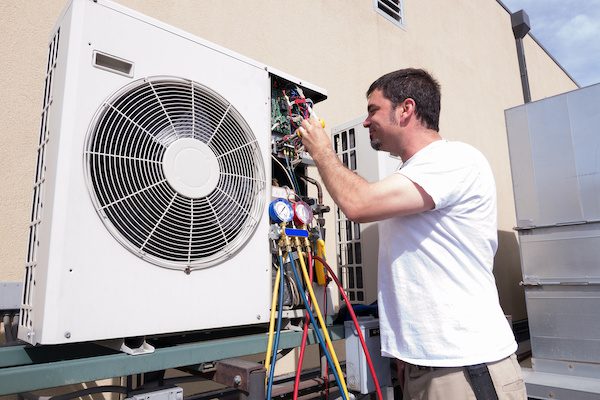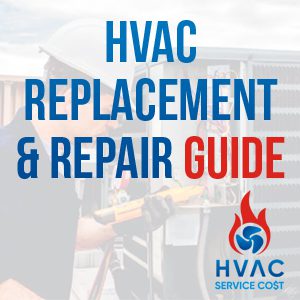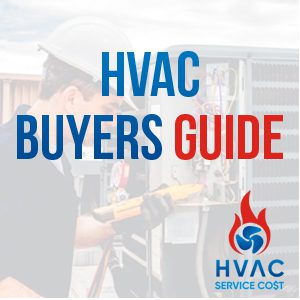
What Does an HVAC Tune-Up Include? Understanding Essential Services
Regular maintenance of your heating, ventilation, and air conditioning (HVAC) system is crucial for its optimal performance, energy efficiency, and longevity. One essential aspect of HVAC maintenance is the tune-up, thorough inspection, and servicing of your system. In this blog post, we will discuss what an HVAC tune-up entails, its benefits, and the cost of this crucial service.
COMPARE QUOTES NOWThe Components of an HVAC Tune-Up
To ensure that your HVAC system is running at optimal performance, tune-ups typically include a combination of services. An HVAC tune-up consists of various tasks that help ensure the proper functioning of your system. These tasks generally include:
- System Inspection: A thorough inspection of your HVAC system, including the indoor and outdoor units, ductwork, and thermostat, to identify any issues or potential problems.
- Cleaning: Removal of dust, debris, and buildup from the system’s components, such as the evaporator and condenser coils, blower motor, and air filters.
- Lubrication: Applying lubricant to moving parts, such as motors and bearings, to reduce friction and prevent wear and tear.
- Electrical Connection Check: Inspecting and tightening electrical connections to ensure proper voltage and prevent potential safety hazards.
- Thermostat Calibration: Checking and adjusting the thermostat settings to ensure accurate temperature control and energy efficiency.
- Refrigerant Level Check: Verifying that the refrigerant level in your air conditioning system is correct, and addressing any leaks or discrepancies.
- Safety Device Inspection: Examine safety devices, such as carbon monoxide detectors and pressure switches, to ensure they are functioning correctly and protecting your home.

The Benefits of an HVAC Tune-Up
To get the most out of your HVAC system it is vital to properly maintain it. One step in maintaining your system is to have a tune-up performed. Regular HVAC tune-ups offer several benefits, including:
Improved Energy Efficiency:
A well-maintained system operates more efficiently, reducing energy consumption and lowering your utility bills. Not only can this lower your bills but it can also help reduce your carbon footprint.
Extended System Lifespan:
Regular tune-ups help to prolong the lifespan of your system, as they catch potential issues before they arise and can prevent costly repairs down the road. Additionally, a well-maintained system operates more efficiently than an unmaintained one, so it will last longer.
Enhanced Comfort:
A properly functioning HVAC system provides consistent temperatures and improved indoor air quality, creating a more comfortable living environment.
Reduced Repair Costs:
Catching issues early during a tune-up can prevent more significant problems and reduce the need for expensive HVAC repairs.
COMPARE QUOTES NOWWarranty Compliance:
Many HVAC manufacturers require regular maintenance as a condition of their warranties. A tune-up helps ensure that your system remains covered under warranty.

The Cost of an HVAC Tune-Up
The cost of an HVAC tune-up can vary depending on several factors, including your system’s size and complexity, your location, and the specific services provided by the technician. On average, an HVAC tune-up can cost between $70 and $200. It is essential to obtain a detailed estimate from your service provider to understand the full cost of the tune-up and any additional services that may be recommended.
Factors that Affect the Cost of an HVAC Tune-Up
The cost of a tune-up can vary depending on various factors. These include:
- Size and complexity of the system: Generally, larger units with more complex components will require more extensive maintenance and incur higher costs.
- Location: The cost of an HVAC tune-up may be affected by your location; providers in urban areas often charge higher rates to higher overhead costs.
- Services Provided: The cost of an HVAC tune- can vary depending on the services provided, such as inspection, cleaning, and lubrication.
Overall, routine HVAC maintenance is essential for ensuring system performance and efficiency. An annual tune-up is a great way to ensure your system is functioning properly and to catch any potential issues before they arise. In addition to an annual tune-up, it’s important to perform regular visual inspections of your HVAC system. Check the air filters monthly and replace them if they appear dirty or clogged. Also, ensure there is sufficient airflow around the outdoor unit; remove any debris or vegetation that may be blocking air circulation. These simple steps can help to ensure your system continues to run efficiently and provide a comfortable living environment all year round.
COMPARE QUOTES NOWHow Often Should You Schedule an HVAC Tune-Up?
Most HVAC professionals recommend scheduling a tune-up for your system at least once a year. For optimal performance, it is best to have your air conditioning system serviced in the spring before the cooling season begins, and your heating system serviced in the fall before the heating season starts. Regular tune-ups can help identify potential issues early on, ensuring your system operates efficiently and reliably throughout the year.

Tips for Choosing an HVAC Service Provider
Choosing an HVAC service provider is an important decision. Finding a quality provider that you can trust is essential for ensuring your system is properly maintained. When selecting an HVAC service provider for your tune-up, consider the following tips:
- Verify Licensing and Insurance: Ensure that the service provider is licensed and insured to perform HVAC work in your area.
- Check Reviews and References: Look for reviews from previous customers to gauge the quality of the service provider’s work and ask for references.
- Obtain Multiple Estimates: Request estimates from several service providers to compare pricing and services offered.
- Inquire About Maintenance Agreements: Some HVAC companies offer maintenance agreements or service contracts that cover annual tune-ups and other essential services. Ask about these options and evaluate whether they could provide cost savings and peace of mind.
- Assess Experience and Expertise: Choose a service provider with experience in servicing your specific HVAC system and brand. This ensures they have the necessary knowledge and skills to perform the tune-up correctly.
Regular HVAC tune-ups play a vital role in maintaining your system’s efficiency, performance, and lifespan. By understanding the components of an HVAC tune-up and the associated costs, you can make informed decisions about scheduling and selecting a qualified service provider. Investing in routine tune-ups will not only improve the comfort of your home but also save you money on energy bills and potential repair costs in the long run.
COMPARE QUOTES NOW


Leave a Reply